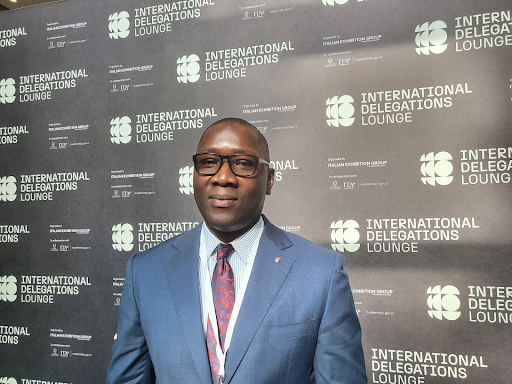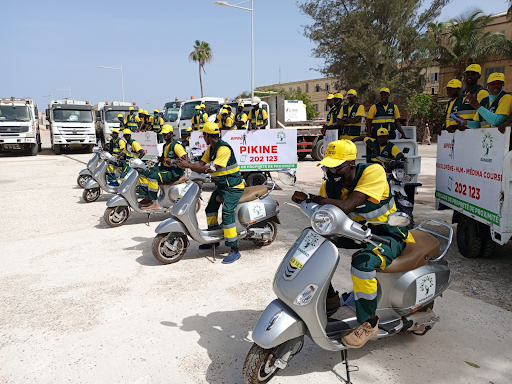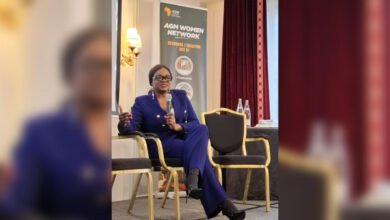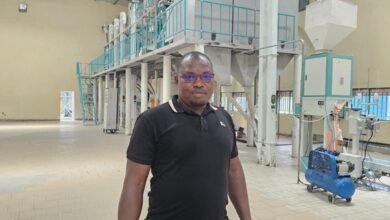Ndiaye Gueye of SONAGED: “Over 10,000 jobs created through innovation in waste management in Senegal”
The National Waste Management Company (SONAGED) is a model in the waste management sector in Senegal. Through public-private partnerships and local initiatives, it has contributed to the creation of over 10,000 jobs and the development of an ecosystem conducive to waste recycling. Ndiaye Gueye, Director of Partnerships and Cooperation, talks to us about the impact of these efforts on the job market and the environment, as well as future projects.

Can you introduce the mission of SONAGED and its key operational features?
SONAGED, or the National Waste Management Company, is a public Senegalese company under the supervision of the Ministry of Urban Planning, Local Government, and Land Development. Our main mission is to provide technical assistance to local authorities responsible for waste management. We coordinate and oversee the national waste management policy, while supporting local initiatives aimed at improving living conditions and promoting waste recycling.
Waste management is a significant challenge for many regions. What are the main difficulties SONAGED faces in this field?
One of the major challenges is raising the standards of waste management in Senegal. This involves developing an ecosystem that supports waste recycling and the transformation of waste into resources. We also need to collaborate with numerous public and private actors to implement sustainable and efficient solutions, both locally and nationally.
Public-private partnerships (PPP) play a key role in this sector. Can you explain how these partnerships work and their effectiveness?
PPP is crucial for supporting waste management in Senegal. Thanks to a legal framework like the General Code of Local Authorities, local governments are responsible for waste management. However, they often lack the necessary resources. The government, through SONAGED, assists these local authorities by providing public funds and facilitating collaboration with the private sector for financing and implementing local projects.
Speaking of successes, can you give us other examples of projects that have worked well due to these partnerships?
Yes, there are several successful projects. One example is our partnership with the Sous-Dossine cement factory, which transforms waste into fuel for industrial kilns. Another success is the establishment of plastic treatment units, such as one that exports granules to China. We have also set up biomedical waste treatment units, like in Séguinchor, to meet the specific needs of some local communities. These projects have created numerous job opportunities while contributing to the sustainable management of waste.
Regarding the impact on employment, what role does SONAGED play in creating new jobs in Senegal?

SONAGED has contributed to the creation of more than 10,000 jobs, mainly in the recycling and waste valorization sectors. By supporting local initiatives and startups, we have enabled many entrepreneurs to enter the waste recycling business, creating jobs and supporting the transition to a green economy.
You mentioned the energy transition and the green economy. How do you support local actors in these changes?
We play a key role in raising awareness and supporting local actors. We help local authorities and businesses with their efforts in recycling, composting, and waste valorization. Many initiatives are led by young entrepreneurs and startups who aim to transform waste into resources, thus creating new sources of wealth and employment.
Regarding project financing, what role does SONAGED play in securing funds for these initiatives?
SONAGED has funds allocated by the state for basic waste management actions. However, for more specific initiatives like waste valorization, we seek additional funding through partnerships with private investors, green funds, and international institutions.
Finally, how does SONAGED handle electronic waste, which is an increasingly concerning issue?
The management of electronic waste is a growing priority for us. We have established specialized centers for electronic waste recycling, including through dismantling and valorization projects. We are also working with partners to develop sustainable solutions and strengthen our legislation on electronic waste treatment.
As we all know, the foundation of this production lies today in the raw materials extracted from our minerals, transported through European countries. Once transformed, these products are then marketed to us. The irony of the situation is that in Europe, there is a regulation on the extended producer responsibility, which allows these companies not only to participate in the creation of products but also in their end-of-life management. However, instead of processing these products at their end-of-life on site, they are sent to Africa. Africa is thus doubly penalized. And it is high time that all stakeholders, including policymakers, are made aware of this issue and that they bring this fight to major international bodies such as the United Nations, as well as in the framework of the United Nations program for the world. It is imperative to mobilize on this matter because it is a real scourge. This scourge is real. Some countries have become aware of it and are starting to legislate, while others, unfortunately, continue to let this situation persist.






